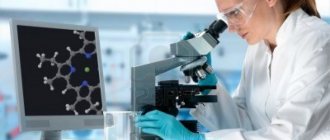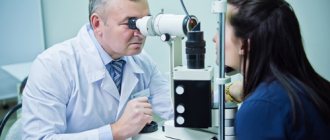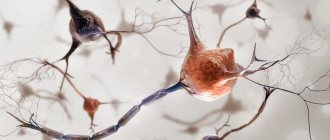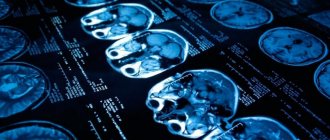- general information
- Causes
- Symptoms
- Consequences
- How to avoid
- Treatment
- Conclusion
Attention! Drug use causes irreparable harm to health and poses a danger to life!
Ethanol and its metabolites have a toxic effect on neurons. Systematic abuse triggers degenerative processes in the central nervous system. Alcoholic epilepsy occurs in the absence of structural damage in the brain and is considered a severe consequence of chronic intoxication. A favorable prognosis is possible only if you completely abstain from alcohol and undergo a rehabilitation course.
general information
Alcoholic epilepsy is a pathological condition that develops in response to prolonged intoxication with ethanol and its breakdown products. The pathological condition is not always characterized by the occurrence of convulsive attacks.
Alcoholic epilepsy is a secondary neurological disorder (symptomatic). Chronic alcoholism leads to damage to neurons in the brain. Disruption of electrical conductivity between neurons causes convulsive paroxysms. The pathological condition often develops in patients with alcoholism. But there have been isolated cases where a single use of a large dose of ethanol led to a seizure.
The term alcoholic epilepsy was coined in 1883. The condition was characterized by the occurrence of convulsive seizures in alcoholics. The root cause has always been organic damage to brain cells due to the toxic effects of ethanol. Almost all patients have a history of traumatic brain injuries of varying severity.
Convulsive syndrome in alcoholism / V.V. Donskoy, N.S. Sukhanova, A.M. Gusev, M.V. Kolontai – Omsk Psychiatric Journal. — No. 2 (2). – 2014.
Almost 30% of chronic alcoholics suffer from alcoholic epilepsy. Frequency of seizures depending on the stage of alcoholism:
| Alcoholism stage | Probability of occurrence |
| I | 17 – 20 % |
| II–III | 60 – 64 % |
| III | 17 – 19 % |
In all cases, the attacks occurred against the background of prolonged and daily drinking of alcohol. But at the same time, there were no epileptic signs on the EEG.
In the international classification of diseases, alcoholic epilepsy is not assigned a code. This condition is considered within other categories or subcategories of diseases.
The term alcoholic epilepsy characterizes several pathological conditions:
- An epileptic seizure is a single or episodic reaction of the central nervous system, against the background of alcoholic excess in persons who do not suffer from alcoholism. The reaction occurs as a result of a post-intoxication state (hangover);
- Episyndrome – systematic attacks. Occurs as a result of chronic alcoholism;
- True alcoholic epilepsy is episodic or systematic seizures with convulsive or non-convulsive status.
Seizures with systematic alcohol abuse are considered harbingers of alcohol psychosis.
Get help now
Do any of your relatives or friends have an addiction? Have you tried in every possible way to help, but as a result the person still returned to his past life?
You are not the first to encounter this problem, and we can help you.
We guarantee anonymity, we will persuade you to undergo treatment, and we will help you choose a center.
Call us
+7
or
Call me
First aid to a patient
In case of epileptic seizures, an alcohol addict should receive medical assistance as soon as possible. But it is clear that the doctor needs time to get to the patient. People who are close to an alcoholic should try to help him on their own. To do this you need:
- Protect the falling person from possible injury. You need to lay it on a flat surface, remove all surrounding objects that it could hit.
- Turn the alcoholic's head to the side and lift it. You can use a pillow or rolled up clothing.
- Unbutton your shirt collar, belt, and remove your scarf to ensure unhindered penetration of oxygen into the respiratory tract.
- Make sure that the alcoholic does not swallow his tongue or bite it. For this purpose, you can let him bite on a hard object.
- If vomiting occurs, turn the person on their side.
When the convulsive contractions pass, there is no need to prevent the addict from resting. Most likely, he will fall asleep immediately. Don't bother him.
If the seizure repeats many times in a row, the alcoholic needs to be hospitalized immediately. At the clinic, he will be given antispasmodics, sedatives, anticonvulsants, and will be told how to avoid relapses in the future.
Causes
The root cause of alcoholic epilepsy is often organic damage to brain cells as a result of a “toxic attack.” This is preceded by a long “experience” of abuse or periodic use of surrogate alcohol.
But there are also risk factors that can cause an attack, regardless of the duration of alcoholism:
- History of traumatic brain injury;
- Cerebrovascular pathologies;
- Compounded hereditary history (epilepsy);
- Neuroinfections.
Alcohol seizures are considered to be quite rare and the most severe symptom of chronic alcoholism.
It is believed that a pathological symptom appears with a continuous history of alcoholism of at least 7–10 years. But there are known cases of seizures occurring after 1–2 years of systematic abuse.
Chronic alcoholism causes metabolic disorders in the central nervous system. Intracellular disorders are characterized by a failure in the transport of calcium and chlorine, as well as dysfunction of gamma-aminobutyric acid receptors. Pathological metabolic effects are temporary and disappear completely after alcohol withdrawal.
Clinical and neurophysiological features of epilepsy in alcohol abusers / V. O. Generalov, T. R. Sadykov, A. I. Fedin, Yu. V. Kazakova, L. P. Mishnyakova, E. V. Amcheslavskaya - Bulletin of the Russian State Medical University. - No. 5 - 2009. - 45 - 46 p.
Treatment of alcoholic epilepsy in the clinic
Persons with status epilepticus and constantly recurring epileptic seizures are hospitalized in the intensive care unit. There they are injected with glucose, saline solutions, anticonvulsant and sedative medications by drip.
The rest of the addicts, whose seizures occur rarely, are referred for comprehensive examination and treatment to the drug treatment department of the hospital or addiction clinic. When providing them with medical care, anticonvulsant medications are used.
It will not be possible to recover if the cause of the disease is not eliminated. This means that the patient must completely stop drinking alcoholic beverages. He should not drink occasionally or little by little. A healthy lifestyle is required. Realizing that the risk of relapse is very high, the patient is offered to be coded.
Symptoms
An attack of true alcoholic epilepsy is a harbinger of alcohol withdrawal. That is, a seizure always occurs as a result of alcohol withdrawal after prolonged or periodic ethanol intoxication. The pathological condition develops several days after withdrawal or against the background of a sharp decrease in the daily dose of alcohol.
During an alcoholic seizure, the clinical picture is homogeneous. But the severity of symptoms and the nature of manifestations may differ.
| Alcoholism stage | Probability of occurrence |
| I | 17 – 20 % |
| II–III | 60 – 64 % |
| III | 17 – 19 % |
An attack of alcoholic epilepsy occurs suddenly and without warning. Sometimes there is an atypical scenario of a non-convulsive seizure. A person falls into a kind of stupor, after which a disorder of speech and thinking occurs. The moment of the attack is completely amnesic.
Narcologists noted that in a state of alcoholic intoxication the convulsive threshold is high, so seizures do not occur. But with the formation of withdrawal syndrome, the convulsive threshold becomes significantly lower. Before an attack, anxiety increases, and visual or auditory hallucinations may occur. In isolated cases, before fainting, victims feel a second of numbness in the leg. The attack lasts on average 3 minutes and in most patients occurs while awake.
A severe form of epileptic seizure is considered to be a recurrence of a seizure after a short time interval - a transition to epileptic status.
After an epileptic seizure, the victim regains consciousness and feels overwhelmed. Sleep sets in for a few hours. In some patients, a full-blown attack does not occur. A day after stopping alcohol, only burning pain in the muscles occurs.
How to recognize post-alcohol epilepsy
Epilepsy that occurs after heavy drinking can manifest itself in three different forms:
- Generalized attack. Conventionally called a “classic” seizure, in which loss of consciousness, muscle spasms, arrhythmia or breath holding, delirium and hallucinations are observed. A generalized seizure can cause death due to head injury from a fall, as well as cerebral edema due to hypoxia or multiple areflexia.
- Partial attack. A local attack in which disturbances affect only one part of the body. For example, the patient may experience involuntary turning of the head or motor activity of the limbs, which is not always clearly noticeable.
- Absence. A “small” attack during which a person briefly loses consciousness or goes “into himself,” remaining completely motionless and not reacting to external stimuli. Absence seizures do not cause seizures.
Consequences
Alcoholic epilepsy is not characterized by personality changes of the epileptic type. But chronic alcoholism, as a rule, leads to degradation. Therefore, attacks aggravate existing changes in personality traits and cognitive sphere (deviant behavior, irritability, anger, decreased intellectual abilities).
When epileptic seizures with convulsive syndrome occur, in 100% of cases, patients are diagnosed with alcoholic encephalopathy, which is characterized by irreversible degenerative changes in the brain.
Complications:
- Traumatic brain injury during a seizure;
- Development of psychotic disorders;
- Retraction of the tongue during an epileptic attack or aspiration of vomit;
- Stopping breathing;
- Cognitive changes;
- Disability.
The frequency of seizures in alcoholic epilepsy does not exceed 2–3 episodes per year. But its danger lies in its transition to a chronic form. Attacks no longer occur against the background of intoxication, but even during a long period of sobriety. This is due to the formation of a pathological focus of excitation in the brain, which causes an epileptic attack.
In chronic alcoholism, epileptic activity is detected on the EEG. That is, the mechanisms of epileptogenesis were launched in the hippocampal parts of the brain - a carrier of epileptic activity. Continuation of alcoholism will lead to the manifestation of unprovoked epileptic seizures.
Alcoholic epilepsy / V.O. Generalov, T.R. Sadykov, Yu.V. Kazakova, V.G. Amcheslavsky, E.V. Amcheslavskaya, S.A. Likhachev, E.V. Veevnik - a manual for doctors. – Moscow – Minsk. – 2014. – 6 – 13 p.
Treatment
An epileptic seizure can occur at any stage of alcoholism. It is impossible to cope with the disease on your own. A generalized attack of alcoholic epilepsy is a life-threatening condition. Therefore, treatment is carried out only in a hospital setting.
There is no specific therapy for alcoholic epilepsy. Drug treatment is carried out to maintain the functioning of vital organs and systems. And also to reduce the risk of secondary complications. The main condition for a favorable prognosis is complete abstinence from alcohol.
Symptomatic therapy:
- Stopping a convulsive attack. Systematic use of anticonvulsants to increase the seizure threshold;
- Prevention of cerebral edema and cardiovascular pathologies - forcing diuresis;
- Muscle relaxants;
- Maintaining water and electrolyte balance;
- Rehabilitation therapy – vitamins, nootropics.
After stabilization of the condition, it is recommended to undergo comprehensive rehabilitation in specialized institutions. With timely treatment of alcoholism, the prognosis is usually favorable.
One of the most important stages of alcohol addiction rehabilitation is psychotherapeutic correction. Its tasks and specific techniques change at each stage of the treatment process. It is especially important that the patient acknowledges his problem and the need for treatment.
Fundamentals of narcology: textbook. Benefit /M. M. Burkin, S. V. Goranskaya. – Petrozavodsk. : Karelia, 2002. – 71 – 73 p.
Hidden epilepsy attacks
It also happens that an epileptic seizure goes unnoticed by others. Relatives who are far from medicine do not see dangerous symptoms. Such subtle attacks are characterized by:
- slow speech;
- deterioration of diction;
- the alcoholic’s use of words or phrases that have nothing to do with the topic of the conversation;
increased irritability and aggressiveness.
People around them think that the alcohol addict has withdrawal symptoms, not alcoholic epilepsy. In this case, treatment is delayed until later, which is extremely undesirable.











